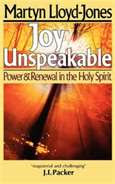Ballad of a Gypsy Boy
"The Spirit and the bride say, "Come!" And let him who hears say, "Come!" And let him who thirsts come. Whoever desires, let him take the water of life freely." Rev.22:17
Below
is a song that I learned as a boy, one that since has often brought
tears to my eyes. My voice would often break as I sang it, as the
wonderful news of the gospel would vividly come to my mind.
TELL IT AGAIN
1. Into a tent where a Gypsy boy lay,
Dying alone at the close of the day;
News of salvation we carried, said he,
“Nobody ever has told it to me.”
Sunday, January 29, 2023 | 0 Comments
A True and False Prophet
Chapter 28
Hananiah challenges Jeremiah… and his God
2. "Thus speaks the LORD of hosts, the God of Israel, saying: 'I have broken the yoke of the king of Babylon.
3. Within two full years I will bring back to this place all the vessels of the LORD's house, that Nebuchadnezzar king of Babylon took away from this place and carried to Babylon.
4. And I will bring back to this place Jeconiah the son of Jehoiakim, king of Judah, with all the captives of Judah who went to Babylon,' says the LORD, 'for I will break the yoke of the king of Babylon.' "
We have come to the chapter, to which I referred in chapter 25 – the controversy between Jeremiah and Hananiah. We will look closer and examine more details. I remarked then that men come under the curse of deception, when they refuse to accept truth. I often point to the fact that Paul showed this divine principle in 2 Thessalonians 2:9 and 10: “The coming of the lawless one is according to the working of Satan, with all power, signs, and lying wonders, and with all unrighteous deception among those who perish, because they did not receive the love of the truth, that they might be saved.”
The incident took place in the same year as in chapter 27, but more specifically, this chapter names the fourth year and the fifth month of Zedekiah’s reign. Hananiah is introduced in verse 1 and he is from Gibeon, a notable city in Bible history. It lay in the northern part of the territory of the tribe of Benjamin and was one of the cities given exclusively as a habitation for priests. Therefore, it is entirely logical to conclude that Hananiah (as Jeremiah) was a priest.
Saturday, January 21, 2023 | 0 Comments
Submission to Nebuchadnezzar
Chapter 27
The Yokes and bonds
1. In the beginning of the reign of Jehoiakim the son of Josiah, king of Judah, this word came to Jeremiah from the LORD, saying,
2. "Thus says the LORD to me: 'Make for yourselves bonds and yokes, and put them on your neck,
3. and send them to the king of Edom, the king of Moab, the king of the Ammonites, the king of Tyre, and the king of Sidon, by the hand of the messengers who come to Jerusalem to Zedekiah king of Judah.
4. And command them to say to their masters, "Thus says the LORD of hosts, the God of Israel—thus you shall say to your masters:
You may remember that I began chapter 24, commenting on the need of the prophet to see clearly and feel deeply the sense of his message, before bringing it to the people. The first verse of the chapter we will now study, states that Jeremiah received this word from the Lord at the beginning of the reign of Jehoiakim. Verse 3 mentions messengers, who come from other countries, to King Zedekiah, an event which occurred several years later.
Some commentators, even some versions of the Bible, such as the English Standard, think that perhaps a scribe made a mistake, writing Jehoiakim instead of Zedekiah, in verse one. I think that the very last thing that we should consider, in order to solve a difficult passage, is that a mistake could have been made in the inspired word. Others say that Jeremiah made the yokes at the time of the first king and delivered them to the messengers later in the reign of Zedekiah. I prefer to apply again the principle of chapter 24… that the prophet needed first to digest the prophecy, concerning yielding to Nebuchadnezzar’s rule, over a long period of time. Calvin, also, sees no mistake in the transcription, but comments: “It was thus long deposited in the prophet’s bosom, in order that by it he might be supported under trials in his prophetic career in the interim.” Those are two possible explanations for God speaking His word to Jeremiah long before he delivered it to the people involved.
Let the difference in verse 1 and verse 3 be for whatever reason God determined that it should be, we will go on to the heart of the message. Once again Jeremiah is to symbolize his prophecy and this time the Lord instructs him to make yokes and bonds. OF course, a yoke was put over the necks of two oxen, to unite them as they worked together and to hitch them to an object, which they would pull. The bonds simply held the yoke together, the top part to the bottom. Jeremiah is to make one for himself to personally exemplify the future bondage to the emperor of Babylon. Then he is to make others and have them ready to give to five ambassadors from Edom, Moab, Ammon, Tyre and Sidon to carry back to their kings, while Jeremiah will bear the yoke in Jerusalem.
Thursday, January 05, 2023 | 0 Comments


.jpg)
.jpg)







